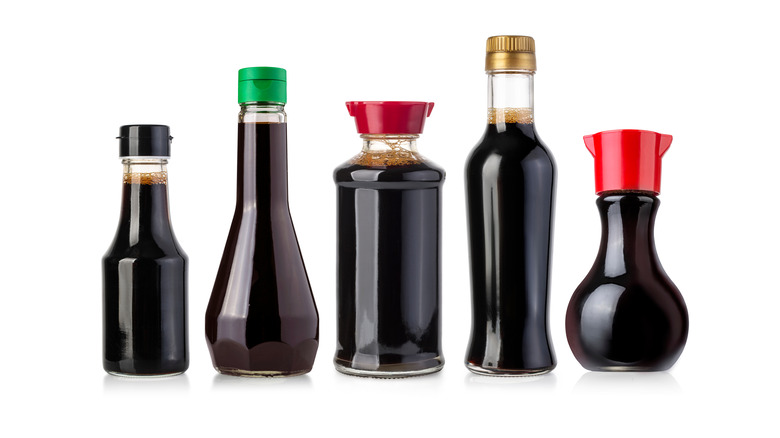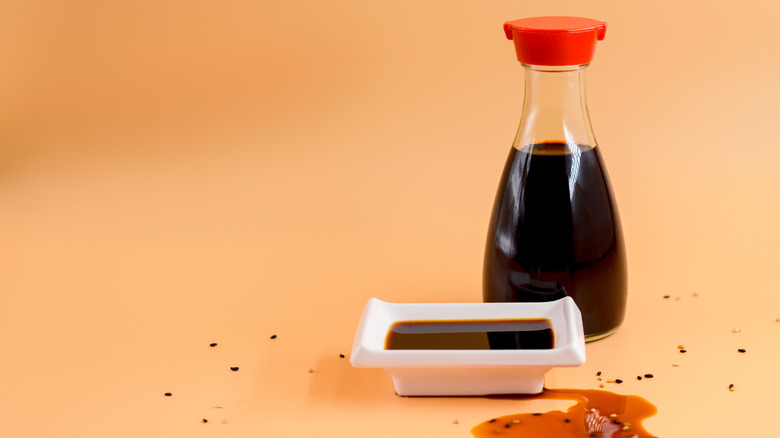The Real Reason You Don't Need To Keep Soy Sauce In The Fridge
As avid cooks, you'd think that by now we'd have figured out which ingredients live in the fridge, which live in the freezer, and which are best kept at room temperature — but we've got to admit we haven't. We've got the basics down, of course — it's not like we're storing a gallon of milk in the pantry and wondering why it's going bad — but there are finer gradations that still confuse us sometimes, and we're willing to bet you feel the same way.
For some reason, condiments are among the most confusing items when it comes to storage. We know, for example, that both olive oil and vinegar should be kept at room temp, but when we mix them together to make a salad dressing, should that then be kept in the fridge? The answer, according to The Kitchn, is that plain vinaigrettes should be fine at room temperature, but when adding perishable ingredients such as fresh herbs, garlic, or mayo, you should slip that guy into the refrigerator. Another condiment that has confused us with the refrigerate-or-not question is soy sauce.
Nope, there's no need to refrigerate soy sauce
We have some good news for those of you with overstuffed refrigerators — if you've got a bottle of soy sauce tucked in there, you can take it out right now. According to Delish, it's totally fine to store soy sauce in the pantry or in a cabinet, and that's because it's a fermented product. Made up of soybeans, roasted grains, and brine, the mixture is fermented by the addition of a mold called kōji (via Pure Wow). That process of fermentation takes months, and by the time it's completed, a robust army of microorganisms is in place to fend off any bacteria that would cause spoilage (via Science Meets Food).
So how to store soy sauce? Don't overthink it. According to Pure Wow, any spot away from heat and direct sunlight works well — just don't keep it above your stove, where it's too hot, or on a windowsill, which is too bright. Stored in a cool, dark cabinet, drawer, or pantry, soy sauce will last anywhere from two to three years. If your bottle of the brown stuff has been out longer than that, go ahead and transfer it to the fridge, where it will basically last ... forever.

